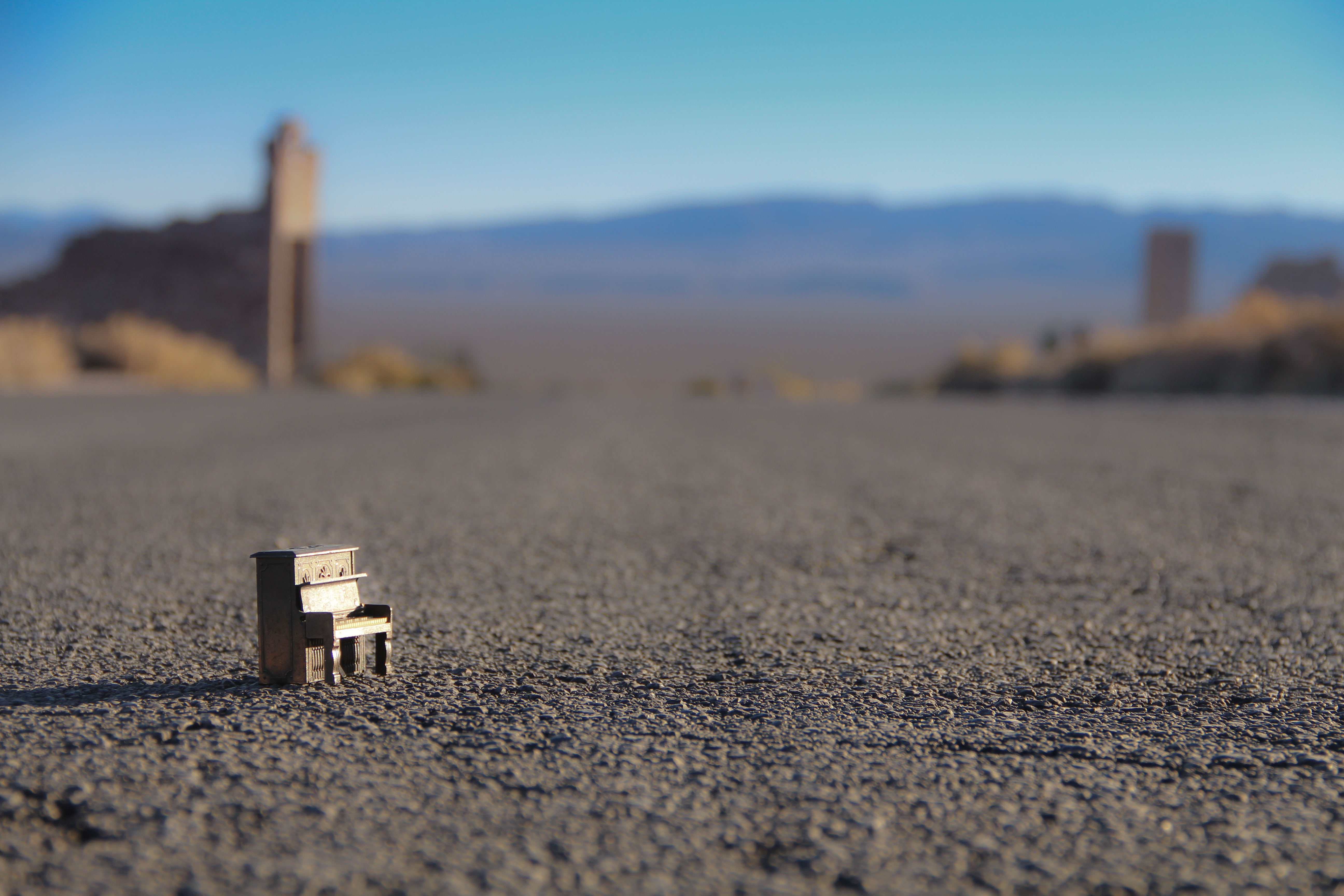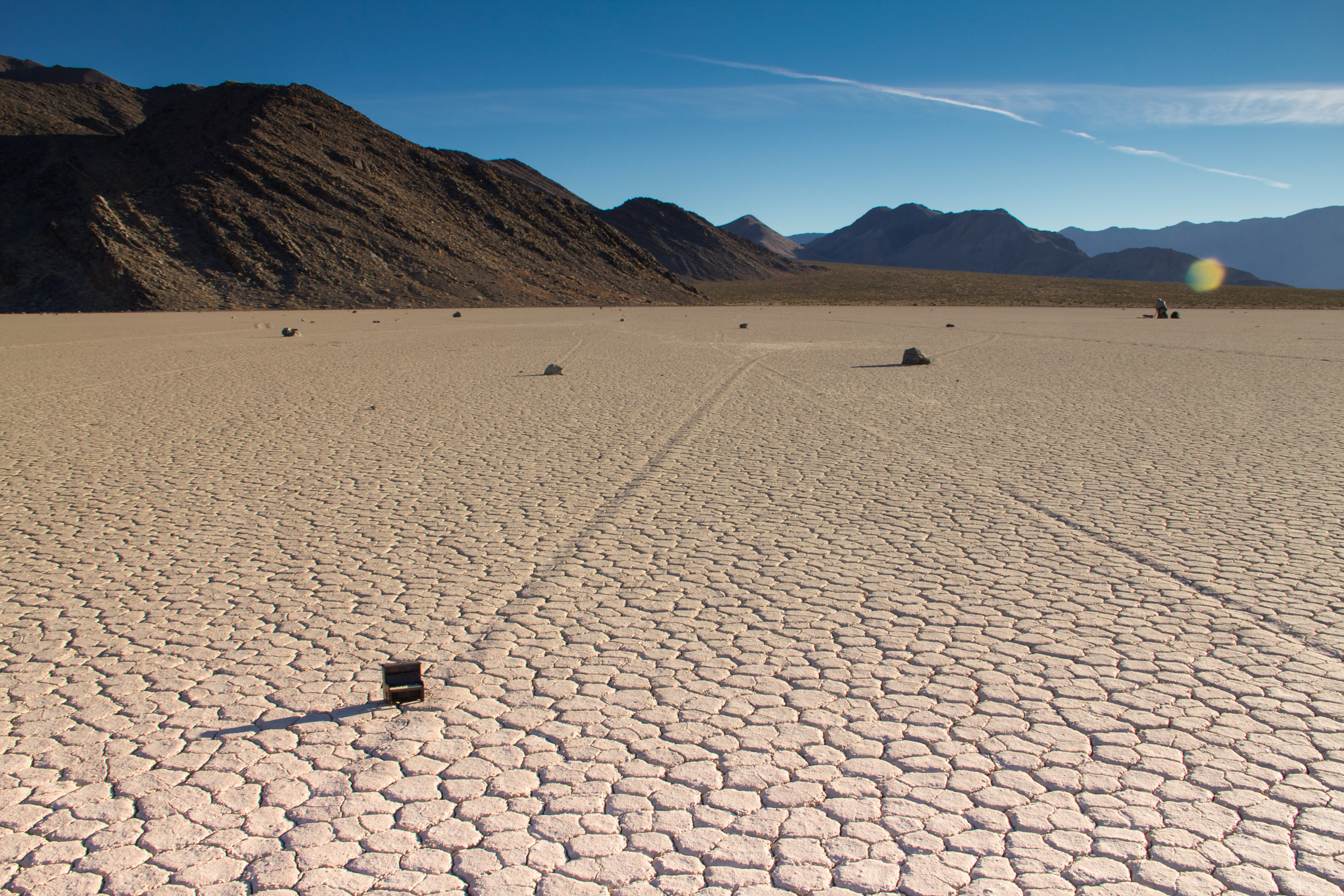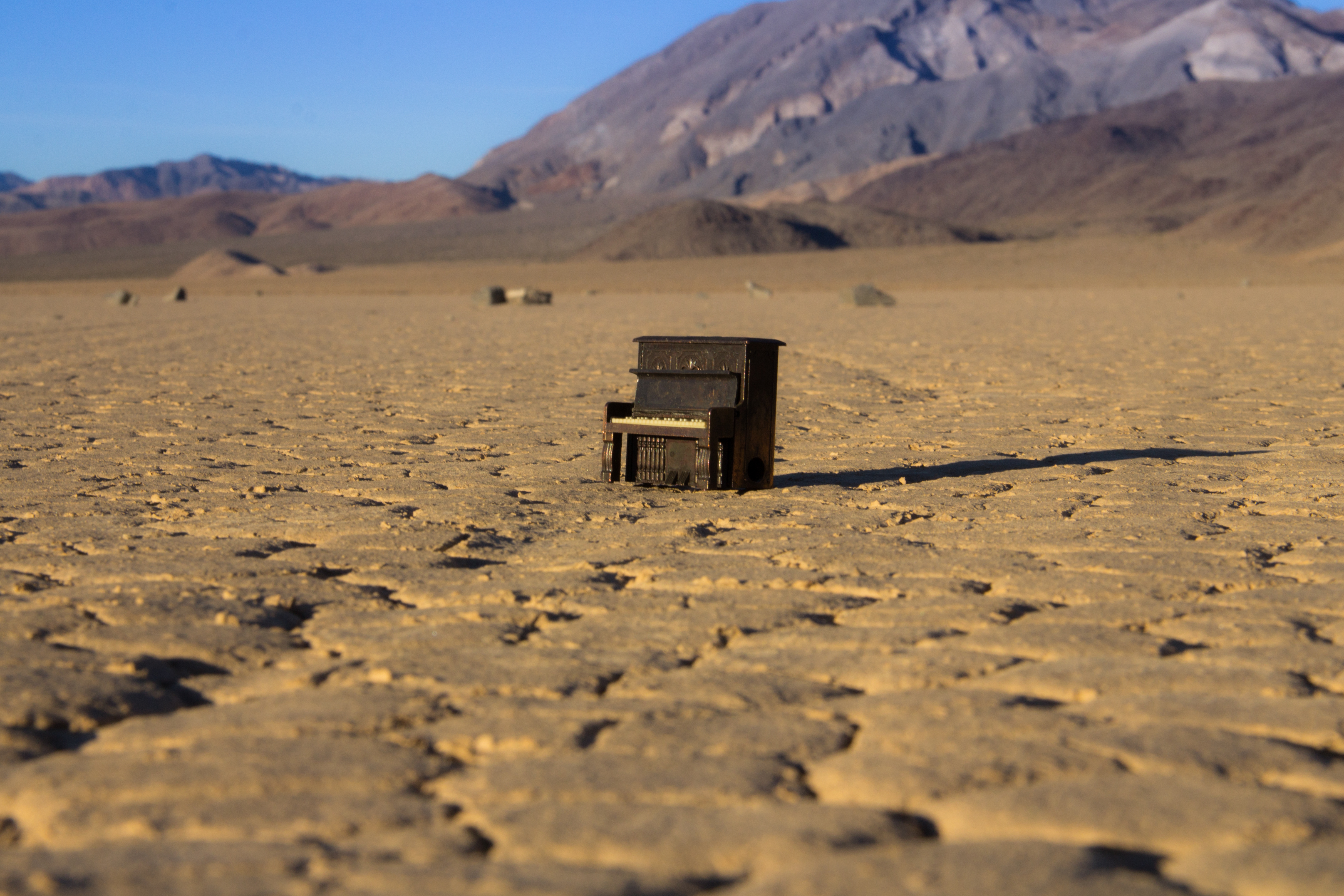Photo credit: Lauren Volness
The road from Las Vegas to Death Valley Junction is long and flat, a two-hour drive up the western border of Nevada, past sagebrush, power lines, and water towers. Cruising 75 mph through a wide basin with low mountains in the distance and an eternal, raw blue sky stretching overhead was monotonous but peaceful. I cracked the window to let in a rush of cool November air carrying the scents of dry earth, creosote, and mesquite brush, and hoped that I wasn't about to waste a week away from my family and a couple thousand dollars on this trip.
I'd just finished the first draft of my novel
The Weight of a Piano, a sizable portion of which takes place in Death Valley National Park. In that part of the story, Clara, an auto mechanic and owner of an antique upright Blüthner piano that she can't play, ends up in Death Valley with a Russian-born photographer, Greg, who's featuring the Blüthner in a series of images taken throughout the park over the course of a week. Their journey is a struggle for many reasons, not the least of which is the discovery of how they are linked not only to the piano, but to each other.

As I was writing about them, I too was struggling, although I had no apparent reason to be. My second novel was due for release the following spring, and I was working on this new one. My husband and I were gainfully employed, and our family was healthy. I felt socially secure. But underneath, I was burdened by a sense of creative doom: a pervasive, shape-shifting worry that I'd tapped all the resources in my imagination and nothing else I'd ever write would be as good as the thing I'd just finished. It didn't help that I wasn't happy with the current draft of the new novel. I'd written in my journal: "The heart of this story eludes me, and the nature of the protagonist is still not totally formed in my mind. I woke up in a funk about it, and grumbled through the morning. Maybe I should just fucking go there and see if I can figure it out."

That I was actually able to do so rested on the fortuity of several unrelated and serendipitous events. First, one of the photographers who'd been advising me announced that he had a last-minute opening on a four-day photography workshop in Death Valley. Coincidentally, they were going the exact week that my characters did in the book, and to the exact same locations. Second, Yaddo rejected my application for a writer's residency that same week, and my husband had already moved a business trip so he could be home in case I was accepted. And third, a gallery I work with sold a piece of artwork I'd collaborated on, and I received a check for my portion, which exactly covered the cost of the workshop. So I booked my tickets and packed my bags.
It was the overwhelming beige on the drive from the Las Vegas airport to the park's entrance that dampened my enthusiasm. As far as the eye could see, there was nothing particularly interesting to look at. It was just endless, barren-looking beige. What did I think I'd learn from that? I started thinking about all the other things I could be doing: working on a new draft, planning my son's birthday party, sleeping in my own bed. But then, about 30 miles away from Death Valley, in the middle of a vast swath of desert drained otherwise of color and distinction, a huge red sign off the side of US-95 announced
BROTHEL Hot Sauce Pictures Souvenirs, and right then I knew I'd made the right decision.

None of the research I'd done — the hours spent dragging Pegman around Google Maps Street View, the half-dozen interviews with landscape photographers, the intermittent phone calls to park rangers to ask questions like, "If someone were to get a flat tire at the Racetrack Playa, who would they call for help?" and "Is there cell service at the top of Ubehebe Crater?" and "Which peaks on the Panamint range have the best overlooks?" — had revealed such a savory detail as that 20'x25' sign out there in the middle of the desert. In fact, as helpful and necessary as that preliminary work was, it wasn't until I was actually there that I realized how many essential details I — and the novel — would've missed if I hadn't gone. How would I have known how to buy park passes at the pay station, or how the fine dune sand squeaks beneath your feet, or how quickly the shadows swallows the basin when the sun dips behind the Funeral Mountains? I wouldn't have known that you can walk for miles across an ancient lake bed and feel like you aren't going anywhere, or how heavy and brittle those enormous honeycomb chunks of salt are, or what it feels like to stand at the lowest point on earth and crane your neck to see the sea level marker 292 feet above, or that you have to set your jaw while driving on the washboarded road from Teakettle Junction to Racetrack Play to keep from chipping your teeth.
Could I have written the book entirely without ever experiencing the incredible sights that my characters did? Sure. Probably few people would have noticed the gaps in my knowledge; the Venn intersection of professional photographers + Death Valley experts + readers of fiction is likely pretty small. But I'm so glad I didn't. Before the trip, I bought a tiny, antique metal pencil sharpener that looked like the piano in my novel. I carried it in my camera bag and photographed it in each of the settings that Greg shot the eponymous 560-pound, Czarist-era Blüthner. Employing Russian theater director Konstantin Stanislavsky's acting technique, in which actors portray emotions on stage by putting themselves in the place of the character, I was able to better understand the journey that Clara and Greg took through the desert. Recreating that week allowed me to correct some technical mistakes I'd made and strengthen the narrative in places where it was lacking. More importantly, going to Death Valley at a time when I was questioning my value as a writer brought me back to myself, and both the book and I are better for it.

÷ ÷ ÷
Chris Cander is the author of the novels
The Weight of a Piano,
Whisper Hollow, and
11 Stories, and the children's picture book
The Word Burglar. To share her love of reading and writing, Chris teaches creative writing through Writers in the Schools and stewards several Free Little Libraries. Chris also holds a 3rd dan in taekwondo and certification in women’s defensive tactics instruction. She lives in Houston with her husband and two children.